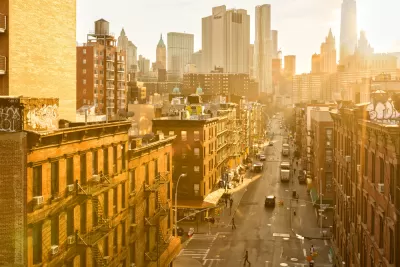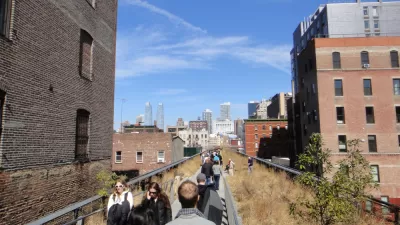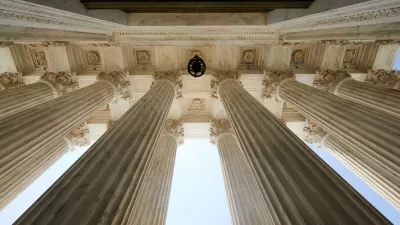A brief by the Cato Institute describes historic preservation laws as arbitrary and ambiguous. A case before the Supreme Court could decide on either side of the issue.

Nick Zaiac shares news of a new research brief from the Cato Institute that argues for consistency between the historic preservation rules of major American cities. According to Zaiac and the Cato Institute, preservation laws tend to be ambiguous and arbitrary as a result of "a difference in the ways various circuit courts interpret historic preservation." That is, "[t]he nation is split between areas governed by property-owner-friendly rules (the Third and Seventh Circuit Courts of Appeals), areas governed by regulator-friendly rules (the First, Second, Fourth, Sixth, Eighth, Tenth, and Eleventh Circuit Courts of Appeals), and areas where courts have not ruled (the Ninth and D.C. Circuit Courts of Appeals)."
The Cato Institute's brief supports the side of Stahl in a case currently before the Supreme Court, Stahl York Avenue Co., LLC. v City of New York and New York Landmarks Preservation Commission, in "[seeking] to iron out these legal ambiguities, and make the laws of the Third and Seventh circuit courts applicable nationwide."
FULL STORY: The Cato Institute Goes After Arbitrary Historic Preservation Laws

Maui's Vacation Rental Debate Turns Ugly
Verbal attacks, misinformation campaigns and fistfights plague a high-stakes debate to convert thousands of vacation rentals into long-term housing.

Planetizen Federal Action Tracker
A weekly monitor of how Trump’s orders and actions are impacting planners and planning in America.

San Francisco Suspends Traffic Calming Amidst Record Deaths
Citing “a challenging fiscal landscape,” the city will cease the program on the heels of 42 traffic deaths, including 24 pedestrians.

Defunct Pittsburgh Power Plant to Become Residential Tower
A decommissioned steam heat plant will be redeveloped into almost 100 affordable housing units.

Trump Prompts Restructuring of Transportation Research Board in “Unprecedented Overreach”
The TRB has eliminated more than half of its committees including those focused on climate, equity, and cities.

Amtrak Rolls Out New Orleans to Alabama “Mardi Gras” Train
The new service will operate morning and evening departures between Mobile and New Orleans.
Urban Design for Planners 1: Software Tools
This six-course series explores essential urban design concepts using open source software and equips planners with the tools they need to participate fully in the urban design process.
Planning for Universal Design
Learn the tools for implementing Universal Design in planning regulations.
Heyer Gruel & Associates PA
JM Goldson LLC
Custer County Colorado
City of Camden Redevelopment Agency
City of Astoria
Transportation Research & Education Center (TREC) at Portland State University
Jefferson Parish Government
Camden Redevelopment Agency
City of Claremont





























